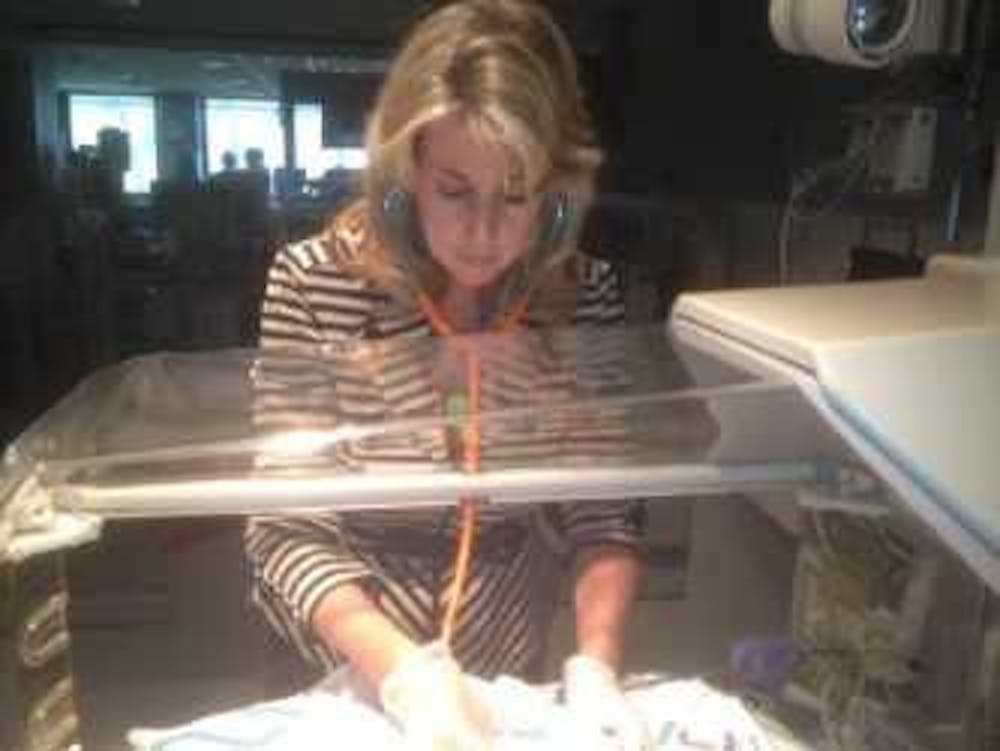UF researchers have found evidence that a routine procedure done on premature babies may do more harm than good. The evidence, published in April in a neonatal study, will lead to decreased administrations of the procedure.
Dr. Leslie Parker, the study’s principal investigator, works as a neonatal nurse practitioner in the Neonatal Intensive Care Unit at UF Health Shands. The procedure, called a gastric residual evaluation, has been in use for decades to measure how much food premature infants are digesting, Parker said, but after the results of the study, UF Health isn’t using the procedure anymore.
Because premature babies are unable to feed orally, a feeding tube goes into either their nose or mouth and down into their stomach. A gastric residual evaluation involves removing fluids from the baby’s stomach before every feeding, Parker said. This process helps doctors measure how much of the previous feeding was left undigested in the stomach. Too much fluid could mean the baby’s stomach wasn’t tolerating the food.
The amount of fluid remaining determines if the amount fed to the baby is increased, decreased or stopped, Parker said. Gastric residuals were routinely performed when feeding critically ill babies.
“There is very little evidence to support that this is something we should be doing to our infants,” Parker said. “In fact, it may cause some issues.”
The results of gastric residuals may lead to babies receiving less nutrition than they actually need and being on IV fluids for a longer time, Parker said.
According to the research, which was published in JAMA Pediatrics, a randomized clinical trial of 143 premature babies showed those who did not undergo the tests consumed more nutrients in the weeks after being born and went home eight days earlier.
Babies in the NICU are fed approximately every three hours. Some of them need a feeding tube for weeks or months. Performing gastric residuals every time they feed can cause damage to their gastrointestinal system, Parker said.
During the study, Parker found it would be better to limit (but not completely stop) the use of the procedure. In situations where a baby may be showing symptoms of not digesting properly or other issues, gastric residuals may help to see if the baby has a lot of fluids left in their stomach.
Josef Neu, a professor of pediatrics at UF, said the study, which featured clinical trials completed in 2017 with a National Institutes of Health grant, halted the frequent use of gastric residuals at UF Health Shands. If there is a concern with the baby, the nurses will perform the procedure, but it is no longer done routinely.
“Let’s say the tummy gets a little larger or a little firmer — the nurses might still do it, might check how much is leftover from the previous feeding, but it’s not being done before every single feeding,” Neu said. “These babies get eight feedings a day, in general, and we were doing this eight times a day.”
Dr. Leslie Parker examines a premature infant in the NICU at UF Health Shands Hospital.






